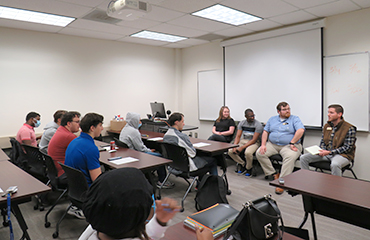
Graduates of business administration programs can pursue a wide range of careers, including those in management, finance, and communication. You can also choose to work in the healthcare industry. Health information technicians and medical record analysts are two common areas of interest for these students. Other options include office and logistics managers.
Health information technicians
One of the fastest-growing occupations in America is health information technology (HIT). This combination combines computer science and management, legal procedures, as well as business principles. Those who pursue a degree in health information technology will be part of an industry that helps the medical community improve patient care while reducing costs. There are many jobs available for health information techs in hospitals, physician offices as well as insurance companies, long-term facilities and consulting firms.
Design companies often hire health information technicians to work as healthcare system and platform designers. They may also be employed by remote facilities or contract services. Working remotely allows health information technicians to set their own schedules. Some roles require professional certification.
Medical records analysts
Health records analysts manage data found in healthcare records. They might also be responsible for creating and distributing reports to help streamline these records. They must hold a degree, preferably in health information or related fields, and have at least one year of supervised work experience. This career requires high standards, but can be highly rewarding and challenging.

Applicants for medical records analyst jobs should be well versed in medical terminology and anatomy and physiology. They must be able manage time and prioritize tasks.
Managers in the office
Business administration degrees can be used by office managers in many industries. A bachelor's degree is usually sufficient to get most entry-level job positions. However, larger companies may prefer candidates with a masters. A lot of employers require that any aspiring office manager obtain the Certified Business Office Manager (CBOM), which can be a lengthy process and take several weeks. An office management degree has obvious benefits.
Managers of offices should be organized and have excellent communication skills. They should have experience with organizing events and traveling. They must also have experience in creating systems and setting up processes that make the office run smoothly. As they will likely lead meetings and write communications for the company, it is important that they are able to listen and read.
Logistics managers
Logistics managers manage the transport and storage of goods for companies. These individuals need to be able analyse processes and solve problems under pressure. They also work closely with various departments to ensure the smooth flow of goods. They work closely with warehouse managers, operations managers, transport managers, supply chain managers, senior management, and other senior managers.
For you to succeed as a logistics manager, your skills must be strong in problem-solving, analytical and communication. You must also have a keen sense of detail and be meticulous. A logistics manager with a keen eye can help companies increase their profits by identifying ways that they can reduce costs and maximize the flow.

Forensic accountants
Forensic account is a specialty in the area of risk management. It requires investigative skills, as well as criminal justice experience. These accountants earn upwards of $150,000 a year. These accountants can expect autonomy and responsibility.
In government and local law enforcement agencies, the demand for forensic accountants has increased. They are responsible for analyzing financial data and conducting investigations into crime and terrorism. They are experts witnesses who may be called to testify at court hearings. They can also be involved in risk management and corporate security.